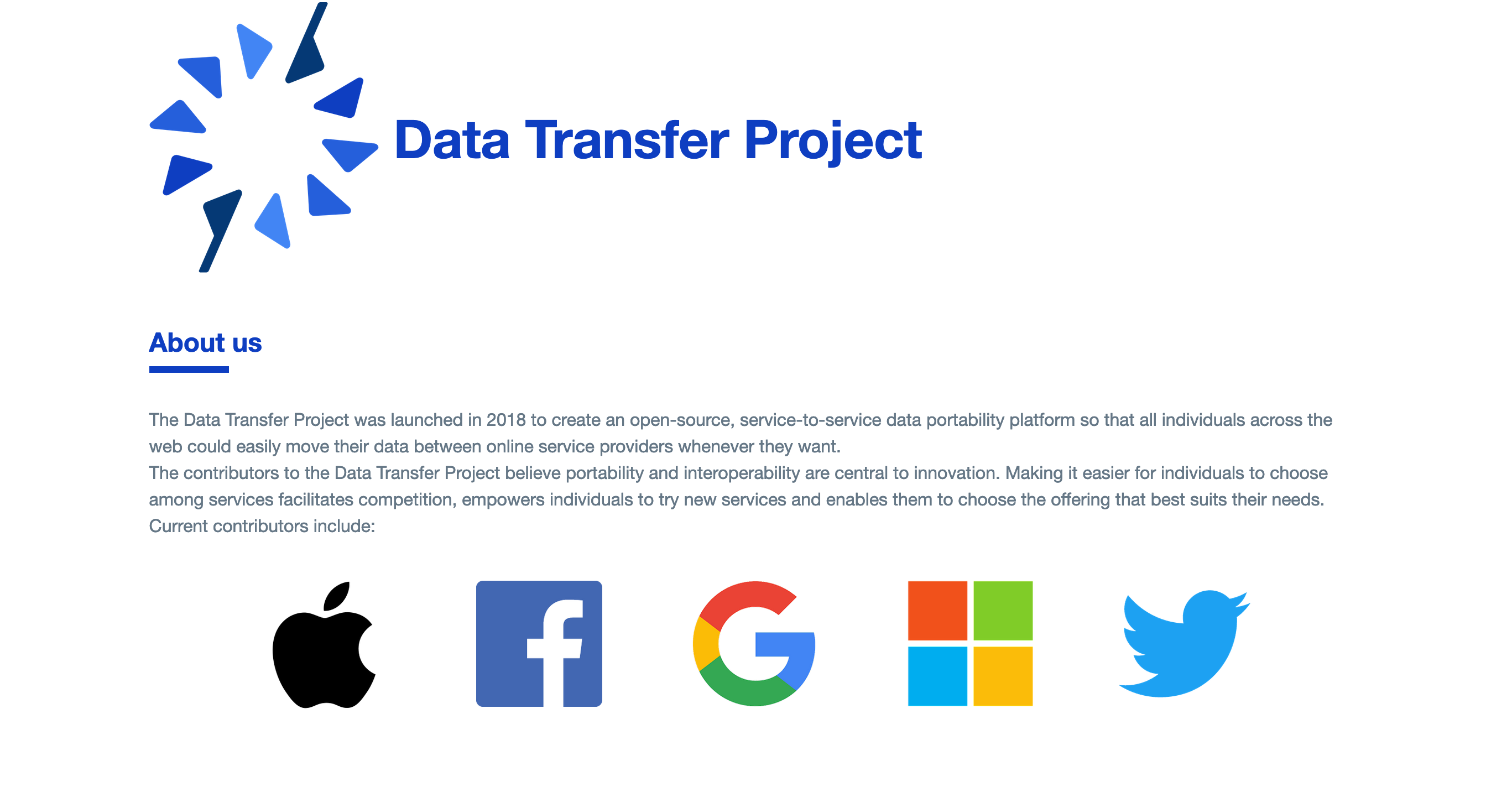Apple have just joined a data portability project… what does this mean?
The Data Transfer Project was set up so that internet users can move their data easily between services, if they wish to do so. Main players are Facebook, Google, Microsoft, Twitter, and now Apple.

Why this is good
Data portability is about giving users control. If you use Spotify but want to switch to another streaming service without losing all everything the algorithm has learned about you over the years.
Having the ability to do this breeds more innovation because more apps just starting out will have access to data that users have produced, and will be able to continue to build and improve their services. This is in contrast to what we have now, where people often begrudgingly rely on one service because it’s the only half decent one out there.
Currently making data requests to use your data elsewhere is not a thing. This project could help users feel less trapped by making their data more portable.
Why this is bad
This is not true data portability — the data is not universal. Sure you can switch all your Facebook photos over to Google photos in a flash, but this creates more problems than it solves. This ultimately give big tech more power and influence than it’s ever had. Google are literally sitting there saying ‘Gosh Facebook, I already have a lot of data but do you mind if I take a look at yours too?’
Singapore have recently announced that data portability should be part of their Personal Data Protection Act. This would be a move to actually put data into standardised formats to be used universally by consumers. The Data Transfer Project is not a way of giving the user more control — it’s a way of ensuring they all hold on to theirs.
Read more about our thoughts on data portability here
